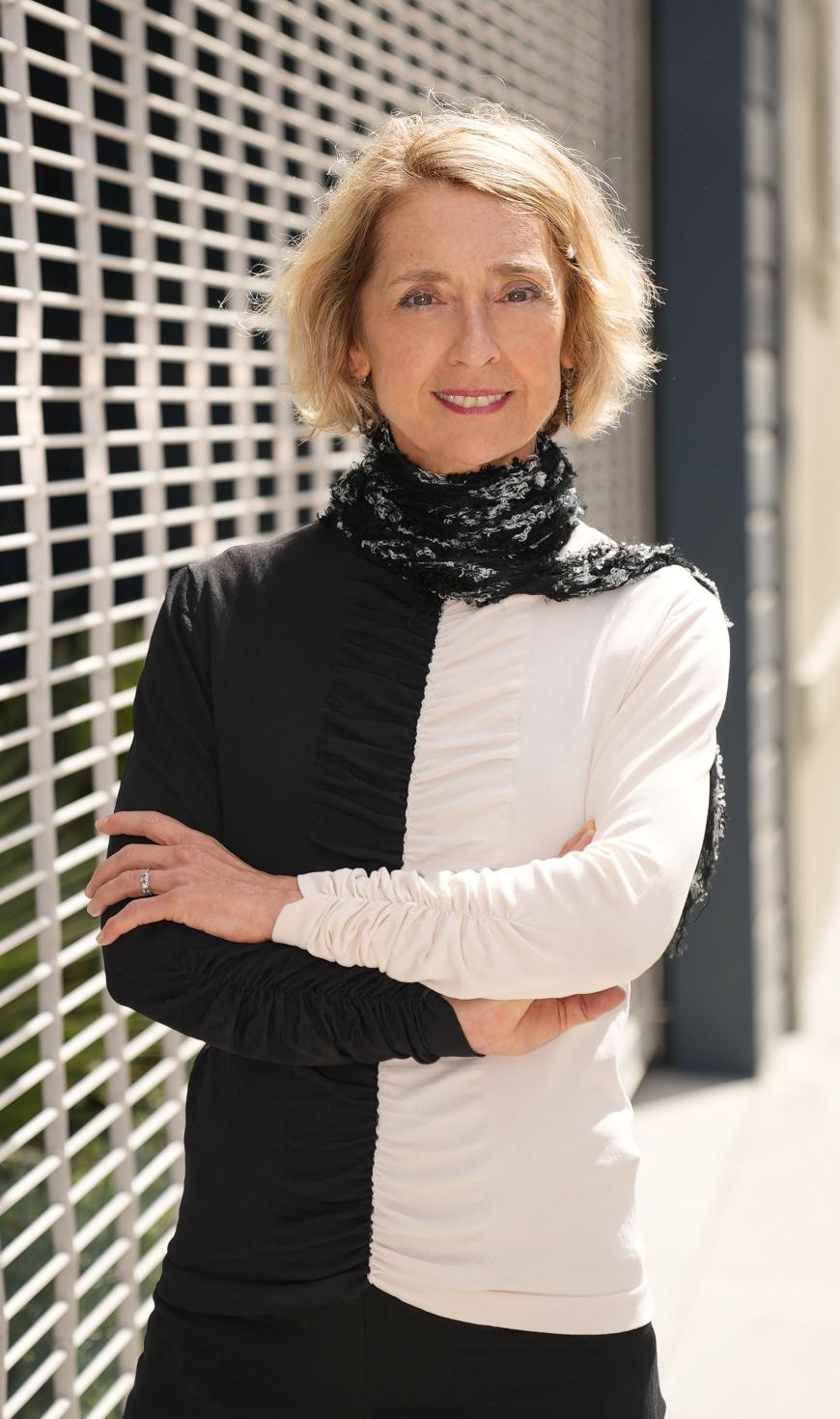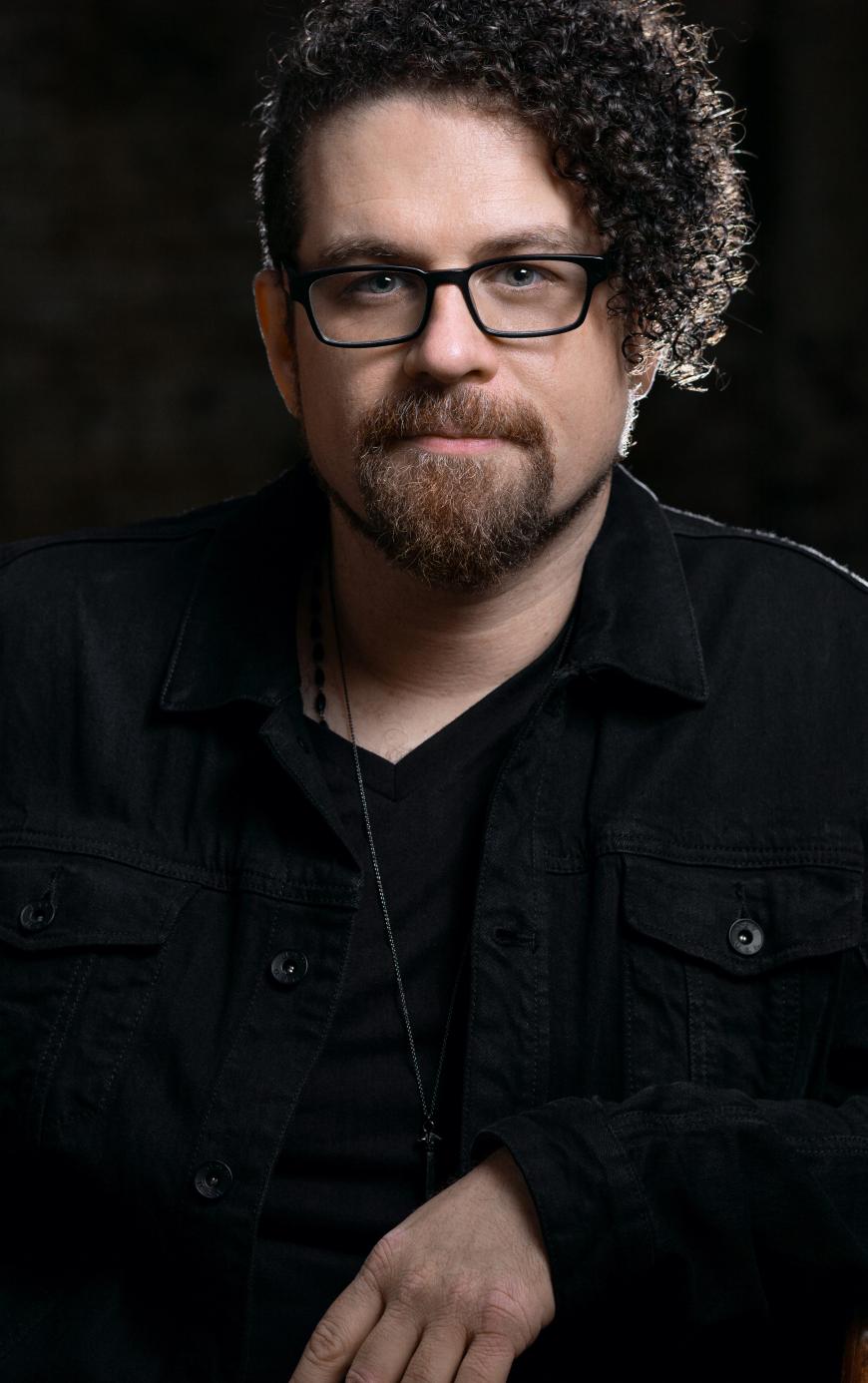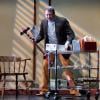
Laura Karpman was in her teens and already composing when Billie Jean King beat Bobby Riggs in the 1973 “Battle of the Sexes” tennis match. King was carried onto the court on a litter and gave Riggs a baby pig as a nod to his self-proclaimed male chauvinism.
A five-time Emmy Award winner and a 2024 Academy Award nominee for the American Fiction soundtrack (you might have seen her at the Oscars ceremony in a sparkly silver-sequined outfit), Karpman admires King’s courage, fortitude, and humor in the face of the overt sexism she encountered in sports. Karpman has experienced that in her profession as well, and she composed the short opera Balls about that famous match.
Now, her piece is having its world premiere from Opera Parallèle. Another short comedic opera, by Grammy-nominated composer David T. Little, Vinkensport, or The Finch Opera, completes the double bill, dubbed Birds & Balls, April 5–7 at SFJAZZ.
Karpman, Little, and Nicole Paiement, general and artistic director of Opera Parallèle, recently had a public Zoom conversation about the process of creating the production. On that call, Karpman said the 1973 match was about much more than sports.

“I think that tennis was the tool by which Billie Jean King effected massive social change, and that is something that I feel very close to, mostly because I’ve tried to do the same thing with composing,” Karpman said. “Sometimes it’s not about marching in the streets for something that you believe in, but it’s about saying, ‘OK, I can do this. How can I use this to get to some place? How can I use this to ultimately change society?’”
Paiement said her company also believes that opera can be a tool for social change, and Karpman gave the famous example of how contralto Marian Anderson performed a concert on the steps of the Lincoln Memorial in 1939 for an audience of 75,000 after the Daughters of the American Revolution denied her the opportunity to perform at Constitution Hall because of her race.
Karpman, a fan of New York Times columnist Gail Collins (like her book When Everything Changed: The Amazing Journey of American Women From 1960 to the Present, which mentions King), asked Collins to write the libretto for Balls. They leaned into the 1970s setting, incorporating an ad with Joe Namath and Farrah Fawcett, as well as one for Virginia Slims, into the piece. There’s also the character of suffragist Susan B. Anthony appearing and cheering King on.

About the production as a whole, Paiement explained that Opera Parallèle has been looking to program shorter works. “I’m very, very excited to finally get to work with David and Laura,” she said. “What we try to find are works that we feel can be combined, and we at Opera Parallèle create kind of an uber-story, a story that connects the two works and enhances them.
“David and Laura each have an amazing sound world, very creative and unique, which we thought would be a wonderful combination. It’s been a wonderful collaboration with both of them. When we talked to them about this, they both agreed that they would look at the orchestration and try to combine their sound worlds in the orchestra in a similar way.”
Both operas deal with the human condition and how competition affects it, Paiement said. And of course, both are about sports — tennis for Balls and the much more obscure finch sitting for Vinkensport.
If you’ve never heard of the Flemish sport, you’re not alone. On the video call, Little explained how he and librettist Royce Vavrek settled on the subject. They were in the middle of their first full-length opera, Dog Days, about a family starving to death, and understandably, they wanted a lighter subject. They were discussing various ideas, and Vavrek brought up a New York Times article he had read about finch sitting, in which participants sit in a row and count the number of times their birds sing a certain song. (Really.)
At first, Little wasn’t interested, but after a week or so, he wanted to revisit the idea, and he and Vavrek found a richness to the story and decided to focus on the birds’ trainers and why they participate in an extremely inactive sport.
“There were all these examples of cheating and doping scandals. I mean, it’s got it all, and every year, there’s an article in The New York Times about finches being smuggled through JFK [Airport] for this sport in the U.S.,” Little said.
He and Vavrek decided early on that the trainers wouldn’t be called by their names but rather referred to as, for example, Sir Elton John’s Trainer or Atticus Finch’s Trainer.

“I have to make myself laugh,” Little said. “Royce and I had a lot of conversations where we would talk about a kind of punch line, and we would both be laughing, and then I would tell my wife, and then she would laugh. It was like, ‘OK, this is good. Keep going in this direction.’ So we got to play a lot, which was really fun.
“I have a background in musicals from way back in high school … and I have been in comedies for most of my life, and it was really rewarding and fun to dig back into that landscape.”
This is one of the things Paiement loves about contemporary opera, she said on a later phone call — that it’s not a specific form and is enriched by diversity.
“Both of these composers are not only operatic composers — they work for film, they write for the theater, and they’ve been influenced by pop and rock and all of that. They bring that to their classical training, and all of a sudden, we’re having these scores that enlarge the palette of [musical] colors.”
Opera Parallèle’s creative director, Brian Staufenbiel, said he enjoyed the challenge of staging the two operas and hit on an idea to bring them together: using real characters, like famed announcer Howard Cosell.
“We’re creating a mash-up of two sporting events, and we’re setting it in the ’70s,” Staufenbiel said. “It’s going to be like, ‘ABC Wide World of Sports presents Vinkensport, and now we’re at the SFJAZZ Astrodome.’ And that whole space [in SFJAZZ’s Miner Auditorium] is in the round, so it feels just like you’re in a sports arena, and then we’ll be projecting on all the walls as well.”
Staufenbiel said he’s seen a spirit of fun in the rehearsals. “We started rehearsing music yesterday, and people just had smiles on their faces the whole time. Four hours of just working our butts off — well, I wasn’t working my butt off. I was watching. But it was just joy, pure joy in the room.
“What I really like about both of these operas is they explore the human condition. They give you hope. They show resilience, and it’s about fighting for something that matters. We hope people will walk away inspired, instead of saying, ‘Oh, man, that took the wind out of my sails.’ We hope it puts the wind in your sails.”
Correction: As originally published, this article misidentified Laura Karpman as a Grammy Award winner. We regret the error.




